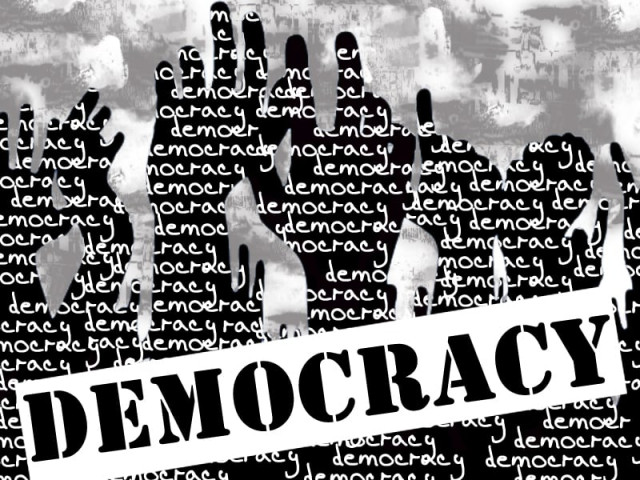Who will lead change to democracy dilemma?
People who sit in assemblies simply do not have ability or desire to do what is necessary

In recent days, as Pakistan's economic woes have intensified, a veritable cottage industry has developed to suggest ways of putting the country back on track. Those offering advice include eminent Pakistani professors at universities such as Harvard and Princeton, former finance ministers, and retired bureaucrats.
In posts on social media and newspaper columns, these distinguished thinkers provide detailed analyses of the problems we face. This is usually followed by a set of prescriptions: raise productivity, slash imports, boost exports, invest in vital infrastructure, rejuvenate local industry, and align the education system with the job market – the list goes on.
All these recommendations make good sense and are indeed worthy of implementation. The problem, however, is that the illustrious thinkers contributing to the debate are missing the point. There is no dispute about what has to be done – it has been clear for some time.
The point they are missing is not "what has to be done" but rather "who will do it." In normal countries, the responsibility would fall on the elected representatives of those countries. But in our case, the people who sit in our assemblies simply do not have the ability or desire to do what is necessary.
Sadly, our problem is that whenever there are elections, we succeed brilliantly in putting the worst of our people in parliament. This is the exact opposite of what successful democracies do – or at least endeavour to do – which is to send the best of their people to parliament. And this is why those countries are successful.
So why do we in Pakistan get this so wrong? Genuine democracy is conditioned on two important precepts: One, that voters understand the issues; and two, that they are free to vote for the candidates of their choosing. Neither condition obtains in Pakistan.
Feudal control of the levers of power has ensured widespread illiteracy. Vast swathes of the population are obliged to vote the way they are told to vote by their feudal lords. The upshot: voters do not understand the issues, and they cannot vote the way they want to.
Clearly, what we have is not "democracy." It is feudalism camouflaged as democracy. This is why the same people or their ilk – the feudal lords and their families – always get elected. By and large, they tend to be corrupt and incompetent. They get elected to parliament to benefit personally from the privileges of being representatives of the people, not with the intention of serving them.
Until such time as we replace these "representatives" – arguably the worst of our people – with the best, nothing in terms of our economic reality will change. We will continue to decline rather than progress.
So, the challenge for all the well-meaning academics and others is to shift their focus from what needs to be done to the central issue of how we get genuine democracy in the country.
A possible solution to our predicament: Limit the vote to those who have had at least 10 years of schooling. People who are educated have minds of their own. They understand the issues. And they are usually not slaves to the feudal.
This is a simple change. But it will – make no mistake – lead to genuine democracy. And, if enacted, it will change our destiny by truly empowering people and opening the doors of parliament to those who have the competence, energy, desire, and will to build the country, not eviscerate it.
THE WRITER IS CHAIRMAN OF MUSTAQBIL PAKISTAN AND HOLDS AN MBA FROM HARVARD BUSINESS SCHOOL


















COMMENTS
Comments are moderated and generally will be posted if they are on-topic and not abusive.
For more information, please see our Comments FAQ